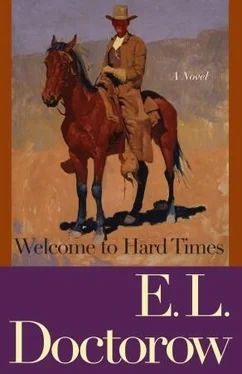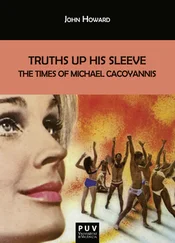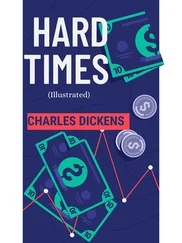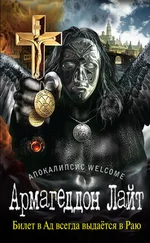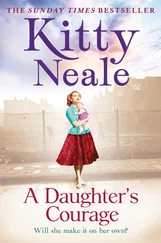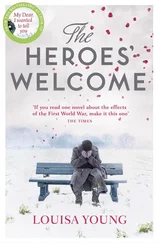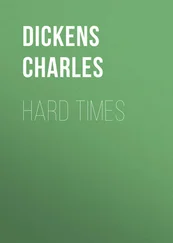“You bucktooth son of a bitch,” said Jessie pushing her face up to Jenks. For a second I thought Molly had heard, but the melodeon was blowing loud and Isaac Maple was shouting over it.
“I was horse-traded! Yessir,” he looked right at me, “I’ll say it. Horse-traded! Paid out good money to settle in this Hell. ’Tweren’t fit country fer Ezra and ’tain’t fit fer me!”
“Didn’t it never snow in Vermont, Isaac?”
“It did, yes it did. But you could reckon it, you didn’t spend yer days and nights beatin’ the sag out of a tent to keep from bein’ buried!”
“Why this is a gentle winter, Isaac,” I said.
“That may be but it’s m’ first and last in this hole, I’ll tell ye.”
“Than go and farewell,” Zar screamed.
“I’ll go, I will, don’t ye fret. When that stage comes I’ll be on it when it goes—”
At that moment Miss Adah stopped her song. And in the sudden silence Isaac looked around and cried: “But that stage’ll never come. We’ll all be dead before that stage comes again!”
Those were the lonesomest words I nearly ever heard. Not a night had passed lately when I hadn’t thought the same thing; but I’d never said it out loud and neither had anyone else. Isaac took the fear in all our minds and put it in the air. A chill ran through the room and in the quiet we heard the wind outside blowing desolate across the earth. I saw a wilderness of snow-crusted flats between us and the rest of the world, and not a track on it.
A moment later Isaac left. Then Molly got up and went off quickly. Mae leaned against the bar and fingering her hair said: “See you next Christmas, honey,” softly, as to herself. Zar slumped down at a table and put his head on his hand. Our gathering didn’t make any more sense, each of us was alone as himself, I wrapped up the boy and we left too.
The forlorn feeling of that Christmas night grew as time went on. There were days of such pure cold that it was like swallowing frost to take a breath out of doors. The weather had us holed up good, almost in spite it seemed like, and if I thought about the spring it was as a lost possibility. How could you remember the warmth of the sun when through one bleak day after another the winter danced around you with every fancy step it knew? We huddled in that cabin, bent grey sticks with eyes in them, I couldn’t even worry that one day we might not have what to eat or make a fire with: it was a worse dread to feel so lost on the earth, a live creature in a lifeless land.
What I’m trying to do now is account for the way things went, this winter had a lot to do with it. Under such conditions even the plain doings of a day had no reason. It was foolishness to eat just to stay alive inside that room; it was foolishness to lie down for the night since you would only wake up to the same day again. Once Molly looked at the door and said: “We’re buried as sure as those people frozen in the ground out there! Oh Christ but we know it, that’s all the difference.” And Jimmy, with that picture of his father, jumped up hugging her and crying as if to make it not true.
Sometimes we could hear through the wind the awful rows Zar made with his ladies. It sounded like murder. The Russian was drinking up his own stock and it made him mean. He knocked a tooth out of the tall girl Jessie’s mouth and on one occasion Miss Adah had to put him to sleep with a stick, he was going at the Chinagirl so.
Leo Jenks took to walking out in the storms and firing his guns into the wind. Once he stayed out too long, claiming he had seen a pronghorn; he may have or he may not, but his fingers froze to his rifle and when he stumbled into Zar’s place they pried it loose and the skin went with it.
And Isaac Maple kept to himself in that tent, marking off each day as a mistake on his pocket calendar. He never talked when you went to buy something from him, not trusting in any exchange of words, but got you out again as quick as he could. On an especially bitter day, when the wind made your teeth ache and froze your lashes, he went around to each of us in turn — Zar, Jenks, me, and then over to the Indian — offering to sell a partner’s half of what he had on order with Alf Moffet Nobody would buy and this convinced him that he was right, that he’d been horse-traded and that Alf would not show up again. From then on he charged us double his price for flour and sardines — which is all he had left — and finally he refused to sell altogether, claiming he needed the food for himself.
When this happened Zar came to see me with his shotgun, saying: “Let’s kill him.” Zar meant what he said, but I did some talking and instead we trudged over to the stable, where Jenks was nursing his sore hands, and we took a look at the horses. They all had loose hides and hanging heads. What feed there was they had eaten up, where there was bark on the stalls they had chewed it off. The Major’s pony seemed worse than the rest, his eyes were dull, his bones stuck out and he had ulcers all over his legs. I borrowed Jenks’s pistol and shot the pony behind the ear.
Not one of the other animals stirred with the sound. Zar took the gun and killed one of his team; and we spent the afternoon dressing down the carcasses. It was something we would have had to do sooner or later, what Isaac did was just as well, another week and there wouldn’t have been any meat to dress down. I got back to the cabin, my hands and feet were numb and my clothes were stiff with blood, but there was a cache in the snow outside the door that would keep us awhile.
We used everything of that poor thin pony, a splinter from his ribs made a needle and his sinew made thread. There was no bark to tan with, but Molly fleshed the hide with the stiletto and for days she beat it with a stone, rubbed it with dirt. She finally got it soft, although she didn’t think she would, and she sewed up a rough jacket for the boy. And I made us covers for our shoes. I will say here that all this — even the slaughtering — helped my spirits. It was doing something purposeful. Molly too worked with a will. But I suppose Jimmy had an attachment for that pony, and although he wore the jacket when it was done, and ate the soup Molly cooked from the bones, he didn’t bother to look at me any more.
Of all the miseries of that winter not the least was waking up to Jimmy’s dislike. I don’t believe in the human intelligence of animals, or that they are to be used in any way but the most useful; I didn’t think when I shot that pony but that it was something that had to be done. However the boy made me regret it. You see once I saw how he felt it made me realize that his feeling was nothing sudden, but like a divide that had risen between us as time went on. I felt less close to him now than the night I sat up with him when his Daddy died. How many ponies had I killed besides this one?
Molly had no such trouble with the boy’s affections, many times she would say something to him that I thought cruel, or she would look at him like he was nothing but the orphan boy he was — but her treatment only made him doggish. Since his illness he had gotten this way, following her with his eyes and waiting patiently for whatever morsel of attention she might throw him. Now I could see in Molly’s face a shadow like she didn’t want him so. It unsettled her, it was nothing she asked for. If I regretted some of the love he gave her I’m sure she did too. I can’t be too clear about that, it makes me sad to remember. It wasn’t until a night about two weeks after the horse killings that I felt properly frozen for the winter.
In the dugout something brought us all awake. It was an unearthly scratching sound. I turned up the lamp and we followed it with our eyes. There was an animal on the roof, scratching at the warmth. I grabbed my gun and just as I did a slat was pushed away, and in a fine sift of snow a thick tawny paw slipped in from the night and clawed at the air above Molly’s head. She screamed. I shot once, twice, not at the paw but through the wood where the heart would be. The paw was gone before my second shot. I thought of the meat we had left outside the door and ran to it, holding the lamp, and from the open door I saw in the dim cast of lamplight a shadow bounding off through the snow. Well the crash was still in my ears and my heart was banging hard when I went around to put the board back in place; and I can’t forget the sight, looking down through there, Molly and Jimmy were hugging each other for all their lives, they were fastened in their terror. After that she got to be as doggish to him as he was to her. She was no longer put out by his regard, but took care of him warmly, often giving him kisses. And I don’t think any of us but me kept remembering, always with a banging heart, the sight of those claws, sharp as scythes, swiping at us from the night.
Читать дальше
